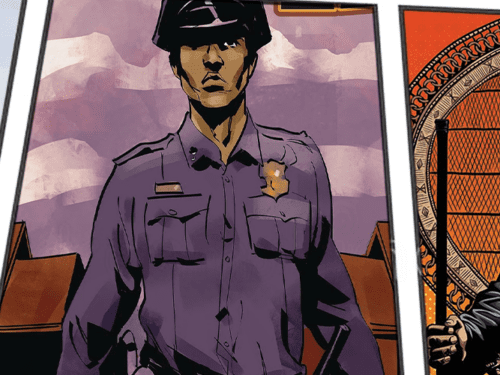Visual History
Interpreting the Past Through Comics

Comic books have been a fixture for American children for generations. Often relegated (and sometimes maligned) to pulp fiction and cheap, simplistic entertainment, and even regulated and censored for a time in part due to congressional concerns about glorification of violence and even communism, comics today have reached beyond capes and monsters to tackle complex and significant cultural issues, including some of America’s most difficult histories.
Visual History: Interpreting the Past Through Comics explores how creators have used comics and graphic novels to tell the stories of the Civil Rights Movement, Japanese internment, and our current rash of police violence against African-Americans in new and accessible ways that reach wide audiences that may not frequent library stacks or academic lectures.
This event is generously sponsored by the Lowell Institute.


